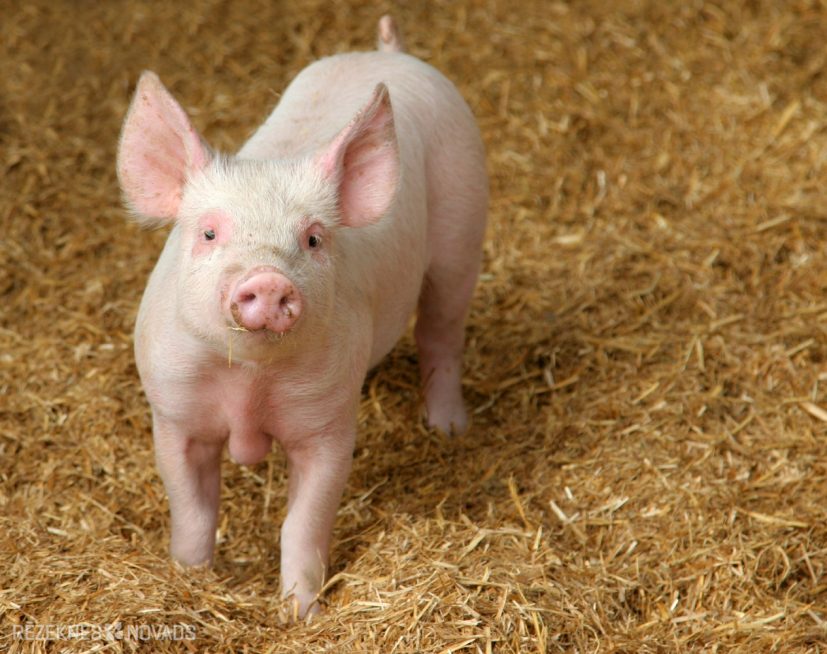Expanded African swine fever (ASF) emergency area and stricter requirements

In connection with the spread of African swine fever (ASF) in Latvia, the Cabinet of Ministers approved amendments to five Cabinet regulations on Tuesday, 12 August. The Regulations “amendments to Cabinet Order No. 322 of 2 July 2014 regarding the announcement of emergency situation” shall determine the extension of THE emergency situation of THE ASF in addition to:
• 21 in the municipality (Varkavas, Livana, Viļānu, Cēsis, Amatas, Vecpiebalga, New Piebalgs, Gulbenes, Ceswaine, Eagle, Madona, Luban, Koknese, Pļaviņš, Krustpils, Varakalans, Islands, Viesīte, Jacob, Aknastes and Ilūkstes),
• five nowls in separate parishes (Ogres municipality, Taurupes, Mazozola, Madliens, Mangeles and Krapes parish; Jaunjelgava municipality in the parish of Seces, Staburaga and Sunacstes; Daugavpils, Preilu and Riebinu District - also in the parish that had not previously been declared AS AN ASC emergency area),
• In four cities (Jçkabpils, Daugavpils, Valmiera, and Rezekne).
The Regulations “Amendments to Cabinet Order No. 359 of 15 July 2014 regarding measures for the limitation of the spread of African swine fever” shall determine the increase in compensation for the slaughter of pigs if biosecurity measures or trade disturbances cannot be implemented on a holding:
1) for adult breeding animals (sows, breeding boars) – eur 170.00 (in place of the current 115 euros);
2) for pigs for fattening and breeding pigs - 120,00 euros (in place of the current 65 euros);
3) for milk piglets – 35,00 euros (in place of the current 25 euros).
In turn, eur 150 000 from the State budget programme “funds for unforeseen cases” was allocated to the Ministry of Agriculture (Rural Support Service) in order to ensure immediate implementation of the compensation laid down in Cabinet Regulation No. 177 of 15 March 2005 “the procedures by which the owner of animals and the owner of the animals receive compensation for losses incurred during the outbreak of animal infectious disease or epizootic disease under the supervision of the State” for the owners of animals regarding losses caused during the eradication OF THE outbreak OF ASCM for the slaughtered (sick) pigs.
Rapid spread of ASF may significantly affect the existence of pig farming in Latvia. Therefore, the provisions “amendments to Cabinet Regulation No. 621 of 20 August 2013, Regulations on the package of biosecurity measures for animal holding sites” have been supplemented by providing that certain biosecurity measures should also be implemented in the pig holdings which are not in the territory of the emergency (no later than 31 October 2014).
In the case of holdings which will be established or planned to be imported into pigs after 31 August 2014 and in holdings where pigs are slaughtered, animals can only be placed if biosecurity measures have been implemented in the holding and a PVD authorisation for the importation of pigs has been received.
The owners of animals who have been slaughtered due to trade disturbances shall be required to provide proof of these disturbances (document or explanation). This provision will not apply to holdings located in the third risk zone laid down in regulatory enactments, from which animals and products thereof are prohibited (CABINET Regulation No. 83 on the elimination OF ASF).
It is stipulated that THE PVD will organise the forced killing and destruction of animals of the porcine species in holdings where the animal owner has not implemented biosecurity measures within the prescribed period and has ensured the slaughter of animals. These animal owners will not be compensated for slaughtered animals.
The amendments also clarify certain biosecurity measures to be taken to prevent the interpretation of the conditions.
The Regulations “amendments to Cabinet Regulation No. 177 of 15 March 2005, procedures by which the owner and owner of animals receive compensation for losses caused during the outbreak of animal infectious diseases or epizootic diseases under the supervision of a State” shall be facilitated by the procedures for the calculation of losses by the Rural Support Service (LAD) as a result of the destruction of the inventory and materials used in the destruction of the corpses due to the outbreak of THE ASF. It is currently determined that the losses are calculated according to the packing slip. The loss shall be calculated as a percentage of the compensation for the pigs slaughtered or killed. Where the holding contains:
1) not more than 10 animals of the porcine species – the compensation will be 50 per cent,
(2) between 11 and 50 animals of the porcine species, the compensation will be 30 per cent,
(3) For more than 50 porcine animals, the refund will be 10 per cent of the refund on pigs slaughtered or killed.
In order to accelerate the receipt of refunds, it is stipulated that documents for the receipt of refunds are prepared not only BY PVD inspectors but also by authorised veterinarians.
The Regulations “amendments to Cabinet Regulation No. 83 of 17 February 2004 on the procedures for the elimination and prevention of African swine fever” introduce decisions of the European Commission on identified risk areas (which directly affect all pig owners whose holdings are located IN THE Emergency zone OF THE ASF) and impose additional restrictions on the movement of live pigs and products between countries, as well as requirements for the disinfection of the vehicles if the vehicle is entering Latvia from Russia or Belarus.
All five regulations will enter into force after their publication in the Official Gazette Latvijas Vēstnesis.
http://www.pvd.gov.lv/lat/augj_izvlne/aktualittes/zm_informe_paplasinata_acm_ark